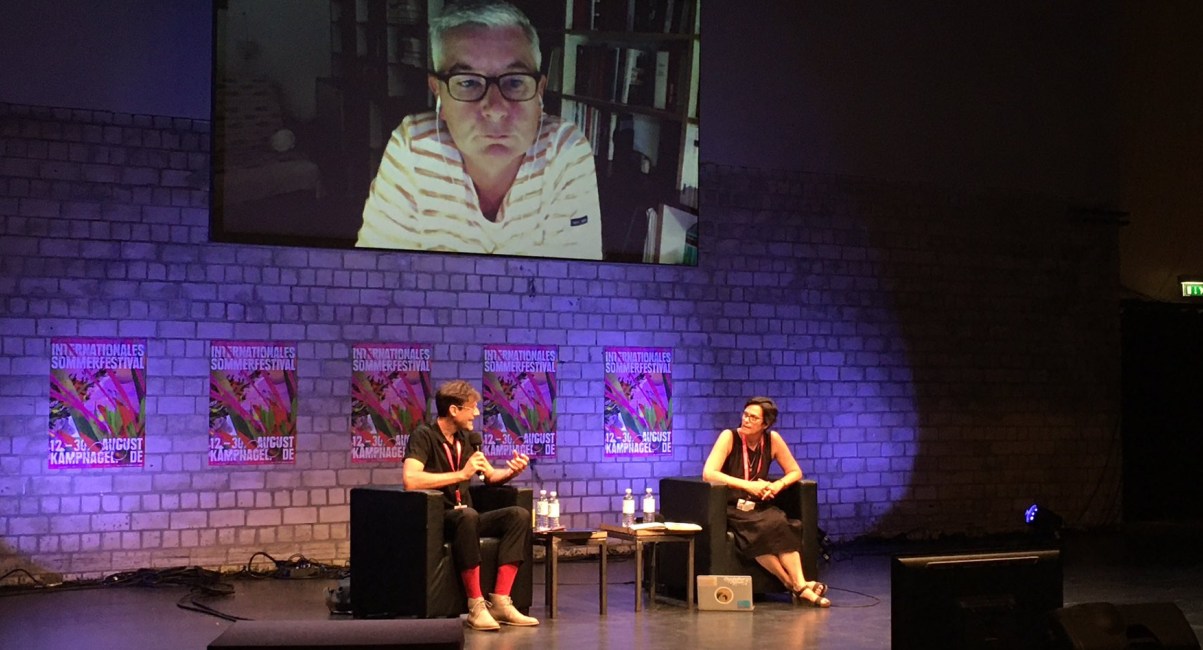Video online: Panel discussion on Corona, Biopolitics an Inequality @ Kampnagel Hamburg

International Summerfestival 2020 - Pandemic Talk Series: In the eyes of the virus (not) all are equal - Corona as (in)equalizer
Panel discussion with Paula-Irene Villa Braslavsky, Sabine Hark, and Karsten Schubert
Social inequality as a health hazard? The author and sociologist Paula Villa discusses the correlation of social and medical discrimination with Sabine Hark, co-founder of Gender Studies in Germany, and the scientist Karsten Schubert.
The corona virus does not discriminate. It does not care about national borders, age or skin colour, it is not interested in people’s income, nor in their passport or prayer book. The virus is, indeed, an ’equalizer’. But this equality is not the whole truth. Because vulnerability is unequally distributed. While, for example, about 40% of people worldwide have hardly any opportunities to wash their hands regularly with fresh water and soap, others have access to medical care around the clock. While some people have been able to use the lockdown for a major slowdown or optionally self-optimization, homeless or refugee people in camps do not even have their own bed. Worldwide, women bear much more of the burden ‘on the front line’ in the fight against the disease, as the relevant activities and professions are often so-called ‘women’s professions’. There are also significantly more older people than younger people affected by severe Covid-19 disease, and men seem to be particularly vulnerable in this respect compared to women, for example. Poor working conditions and conditions of exploitation pose a direct threat to health. The ‘corona crisis’, shows how vulnerable we humans are as bio-social beings.
Sociologist Paula-Irene Villa Braslavsky talks and thinks about how social inequality thus becomes a medical-biological inequality, along with Sabine Hark, who is regarded as a co-founder of Gender Studies in Germany, and Karsten Schubert, who has published a highly regarded essayon democratic and populist biopolitics in the era of COVID-19.
Panelists
Paula-Irene Villa Braslavsky holds the chair of General Sociology and Gender Studies at the Institute of Sociology at the LMU Munich. There she researches sociological theory and gender sociology from post-structuralist, constructivist and praxeological perspectives and works on topics such as biopolitics, parenthood, care and popular culture. She also regularly intervenes in non-academic debates, for example in articles and interviews for the Sueddeutsche Zeitung, Deutschlandradio, Jüdische Allgemeine and Missy Magazin.
Sabine Hark is Professor of Interdisciplinary Women’s and Gender Studies at the TU Berlin with a focus on feminist epistemology and criticism and queer theory. She blogs at blog.feministische-studien.de and publishes in Zeit Online, Der Tagesspiegel and the taz.
Karsten Schubert is a research assistant at the Seminar for Scientific Politics, Professor of Political Theory, Philosophy and History of Ideas at the Albert-Ludwigs-University of Freiburg. His field of research is political theory and social philosophy, especially in the tradition of poststructuralism and critical theory.vielbeachteten Essay](https://www.karstenschubert.net/en/news/20-04-crying-for-repression-populist-and-democratic-biopolitics-in-times-of-covid-19/)zu demokratischer und populistischer Biopolitik in Zeiten von COVID-19 veröffentlicht hat.
[Link to the event page at Kampnagel Hamburg] (https://www.kampnagel.de/de/programm/vor-dem-virus-sind-nicht-alle-gleich-corona-als-ungleichmacher/)
Related Posts
- New Publication: Biopolitics of COVID-19: Capitalist Continuities and Democratic Openings (interalia), 6. January 2022
- Interview about democracy during the Corona crisis and wealth redistribution, 26. May 2021
- Expert (for Biopolitics) at the Market for Useful Knowledge & Non-Knowledge @ Kampnagel Hamburg - Coronaean Times, about states, strategies and bodies in crisis, 25. September 2020
- Video online: Democratic and Populist Biopolitics in the Corona Crisis, 2. July 2020
- Video online: Panel discussion on Social Theory for Research in Pandemic Times at the University of Warwick, 30. December 2020